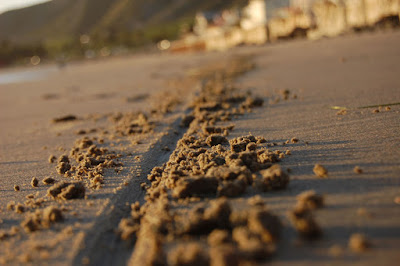 In Esther 3 we see some real trouble starting to brew for the Jews, and it all came about because of Mordecai's decision not to bow to Haman.
In Esther 3 we see some real trouble starting to brew for the Jews, and it all came about because of Mordecai's decision not to bow to Haman.Why did he make this decision? It wasn't anything to do with God's explicit command not to bow down to false Gods - what was being asked for was a public show of respect to Haman, not worship.
Mordecai wasn't just being a stubborn rebel against the state either - he's already shown his actions as a good citizen (in line with God's instructions to his exiled people) in chapter 2 when he intervenes to stop a royal assassination.
What seems to be behind Mordecai's refusal to bow is the fact that Haman is an Amalekite. The Amalekite's had a longstanding opposition to God and his people the Israelites. Haman was drawing a line in the sand and saying: 'I will be a good citizen as far as possible, but as God's man there are things that I will not do'.
We find ourselves living with the same tension. We are to be good citizens and pray for our leaders (have you prayed for our new government yet?). But at the same time as God's people we are going to encounter issues over which we have to take a stand. Take a look in any decent paper and you'll find examples of Christians facing difficulties and persecution - in the UK as well as oversees - for taking tough decisions in line with their faith.
We're not to be overly confrontational, or set out to be offensive or abrasive, but we are going to have to sometimes say: 'I, as a Christian, cannot and will not do this. This is my line in the sand'.
The consequences for Mordecai were nearly catastrophic. In a world that doesn't recognise God the consequences of our stands may cause us real problems. Will we act in faith and trust to God for the future?